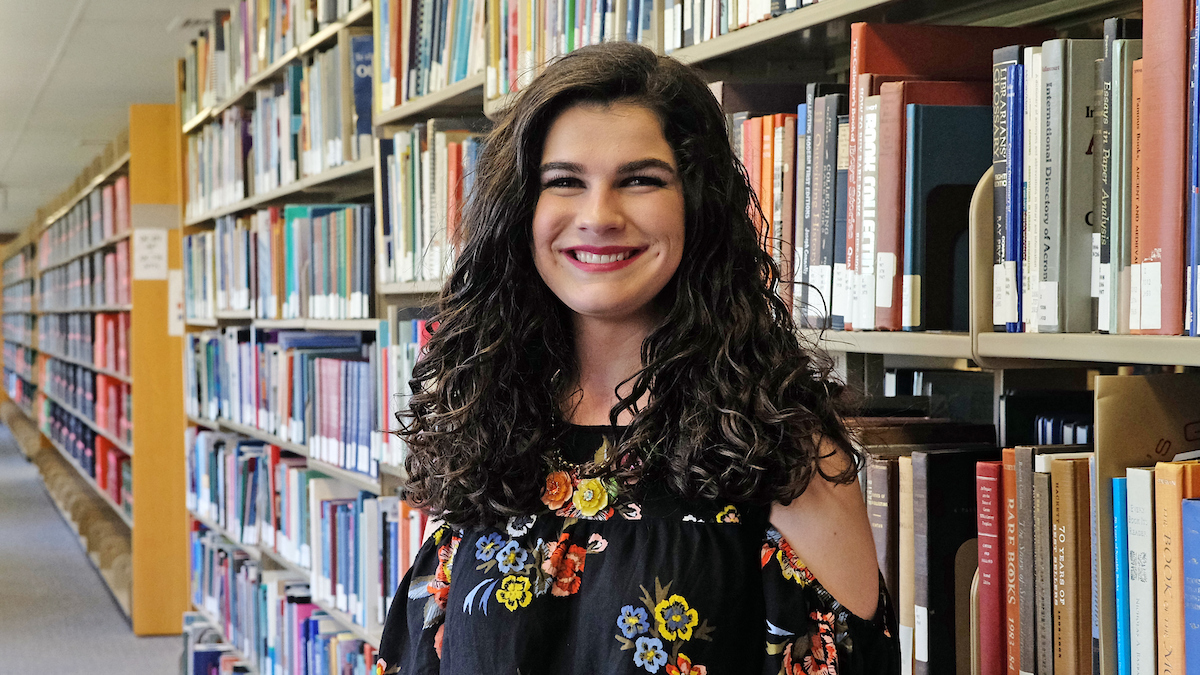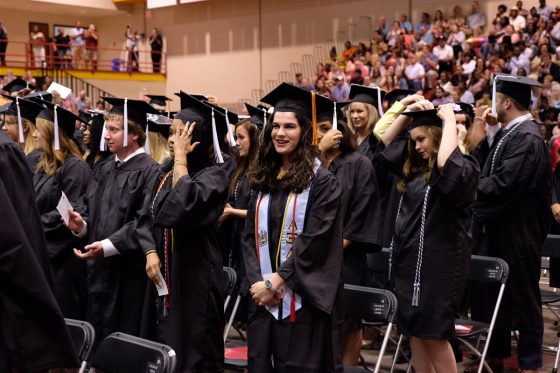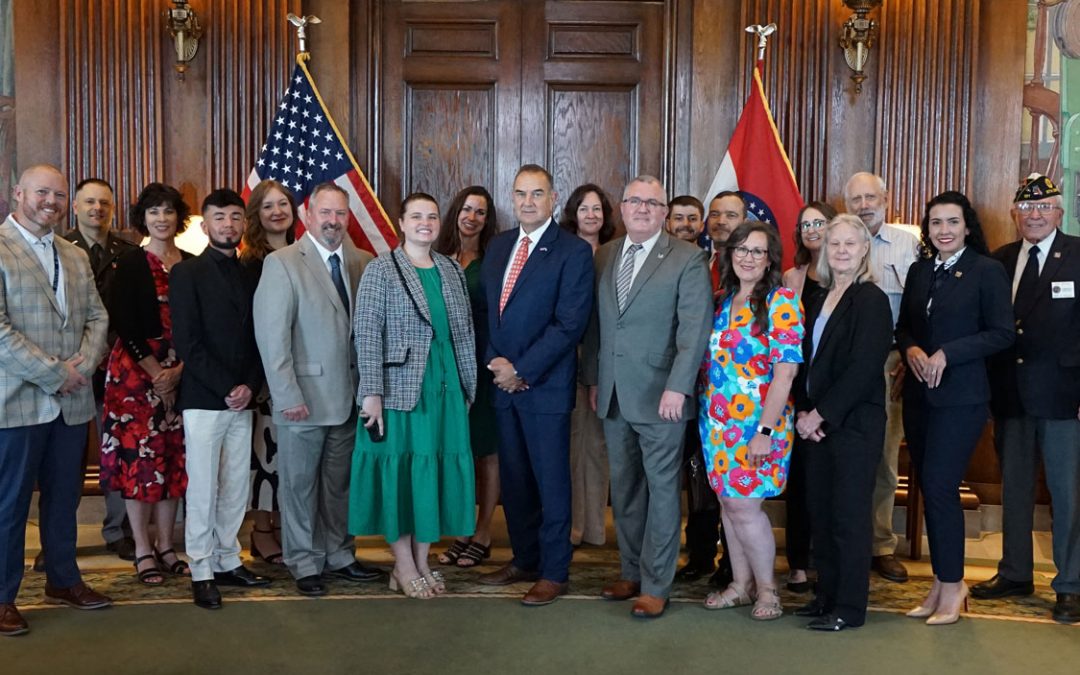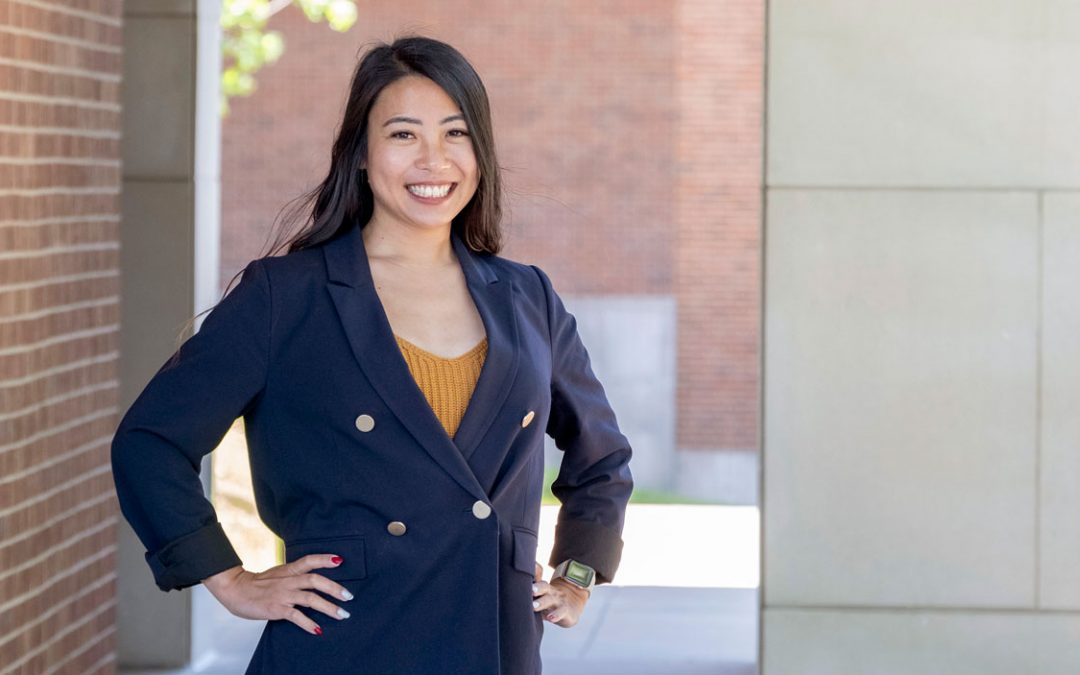
Ashley Westbrook is headed to law school after graduating with a bachelor’s degree in political science and pushing through the rare, incurable kidney disease that has challenged her health since freshman year at UMSL. (Photo by Marisol Ramirez)
At 9 years old, Ashley Westbrook generally knew life to be unfair – and it didn’t sit well with her.
A daughter of two first-generation college graduates, she watched as her parents climbed out of disadvantaged childhood beginnings.
“They had hard lives, and they escaped it, so I didn’t have to live it,” Westbrook said. “It was their life goal to establish stability. They stressed education and that I could do anything I wanted if I put my mind to it.”
With her early social awareness, she set her heart on becoming a lawyer.
“As I got older, I liked the idea of the law being able to change lives,” said Westbrook, who grew up in Cape Girardeau, Missouri.
She moved to St. Louis with her family after finishing high school and gaining acceptance to the University of Missouri–St. Louis, where she took her first step toward law school in declaring a political science major.
But Westbrook hadn’t counted on the unfair twist of fate in her own life.
In the middle of her freshman year, doctors diagnosed her with a rare, chronic and incurable kidney disease, Focal Segmental Glomerulosclerosis. Essentially, her kidneys were shutting down.
“I was tired, but of course, I was a college student,” said Westbrook of her initial symptoms, “and I had put on weight, but I just figured it was the freshman 15.”

Ashley Westbrook (center) stands with fellow graduates at the spring 2018 commencement ceremony for the College of Arts and Sciences. Her red and gold tassel signifies her Latin honors. She graduated summa cum laude. Westbrook is also representing her sorority with an Alpha Xi Delta stole and is wearing red and gold cords as a graduate of the Pierre Laclede Honors College. (Photo by August Jennewein)
In actuality, she had an extra 40 pounds of water weight spread throughout her body.
Doctors began to treat Westbrook with medication to manage the disease with the long-term understanding that if/when treatment no longer worked, she would have to go on the kidney transplant list.
“I did not want to drop out of school,” she said. “Education is one of the most important things in my life because I saw it bring my parents success.”
Westbrook persisted through the symptoms and side-effects of medication. She continued with classes, propping her feet up to keep the fluid in her body from collecting at her ankles. If she didn’t take such precautions, she wouldn’t be able to walk the few minutes necessary to return to her car and drive home. She also suffered with nausea, headaches and blurred vision. At one point, she began to lose her hair.
“That may have been the toughest part – being 19 years old and watching your hair fall out,” she said.
After a round of steroids and two years of immunosuppressants, Westbrook went into remission.
“Whenever you go through something like that, you try not to think about it,” she said. “You do what you have to do to survive. So when you get out of it and have a second to think, you’re like, ‘Alright, I almost died there.’”
That realization and the risk of the disease’s return gave Westbrook a sense of urgency about life.
“There’s a lot of anxiety about time and running out of it for me and spending it the right way,” she said. “I’m still really young. It’s really, really hard to think about your imminent death at 19.”
Instead, Westbrook chooses to focus on enjoying life and using whatever time she has left to edge the needle toward a fair and just world.
During remission, Westbrook completed an internship at the Crime Victim Advocacy Center in St. Louis. She worked for the Court Order of Protection Assistance Projects, helping people through the legal process and documents necessary to be granted an order of protection by a judge.
She listened to stories of abuse of all types – emotional, physical and sexual – and documented the necessary details in legal form.
“The system is kind of against victims,” she said. “They usually don’t know how to fill these forms out or what evidence is needed, so these programs that bring people like me into courthouses really help.”
Westbrook worked two days a week throughout the summer of 2017 and assisted about six people a day leading up to her senior year at UMSL. In the fall, she began applying to law school.
The first in her family to attempt such a process, Westbrook had no idea what she was doing. She used the portfolio experience the Pierre Laclede Honors College provides its students to craft her applications with the help of Teaching Professor Kimberly Baldus. Westbrook tackled 12 drafts of a personal statement.
By October 2017, Westbrook relapsed and the kidney disease resurfaced. She immediately went back on treatment, which again returned her to remission status.
“I’m lucky because I get to live out a fairly normal life,” Westbrook said, “but it could go wrong at any moment. The drugs could just stop working.”
In the spring, she learned of her acceptance to Saint Louis University School of Law. She was not only happy but grateful and relieved that her efforts resulted in realizing a goal.
She carried those same feelings with her during spring commencement as she walked across the stage and graduated from UMSL summa cum laude with a bachelor’s degree in political science.
“Many of my friends are really happy to be done,” she said. “I’m happy to have achieved this because graduation was never a guarantee – not only because of the kidney disease, but also because I’m only the fourth person in my family to have graduated from college. It was never a for-sure thing.”
As Westbrook looks to her uncertain future, she wants to practice family or civil law and has aspirations of becoming a judge one day. She’s also optimistic. She said she has to be.
“I know very well that everybody has their obstacles – be it poverty, family issues, health issues,” Westbrook said. “The idea of having some struggle that you face is not unique. Nothing can be done to fix mine. I can be treated. It can be paused, but nothing can be done to fix it. But maybe with a law degree, I can help people, so they can go on and live out their dreams.”














